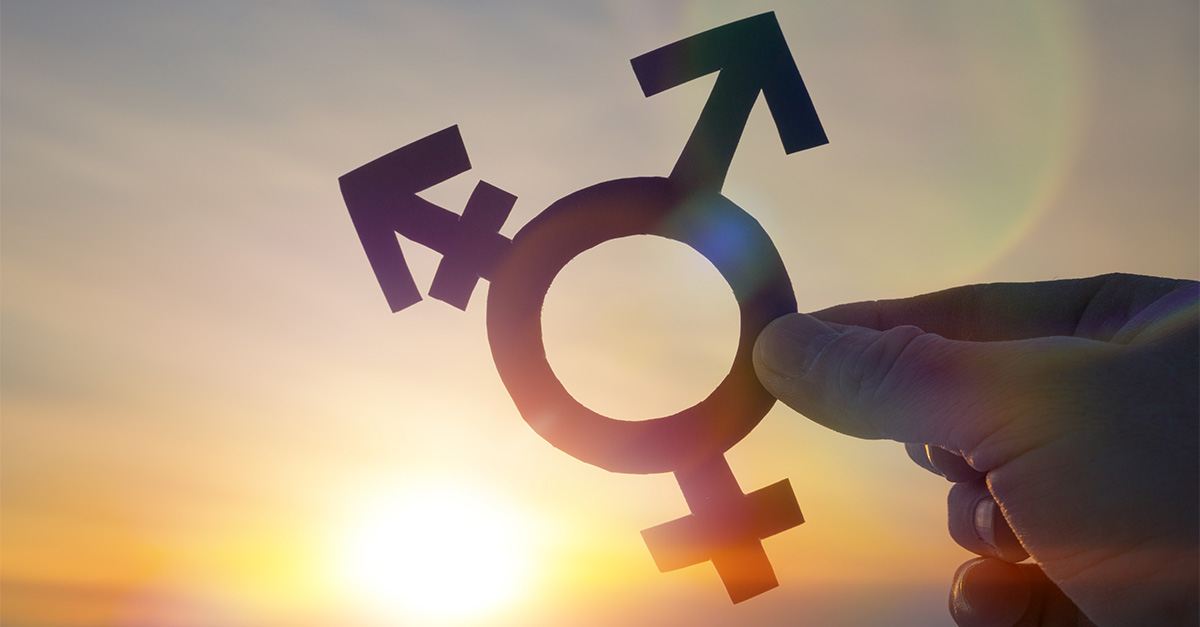


Get a free copy of Parental Rights & Education when you subscribe to our newsletter!

“If God, who created happiness, is not the starting point in your pursuit of happiness, you can never hope to find it — and you will ultimately end up just as empty as the members of dystopian London and the Savage.”
–JOHN SIMMONS
If you’re looking to read a book full of uplifting storylines, inspiring characters, and a message that leaves you feeling hopeful — well, don’t read Brave New World.
The primary events in the story take place in London in the year 2540, where everything is managed and controlled by the totalitarian leaders of “The World State.” Ironically, technological advancements have never been more refined, but humanity is suffering as a result.
One of the many overarching themes we see in Brave New World is how one finds happiness, and there are two contrasting philosophies intertwined in the novel on how the characters pursue this end.
The World State subscribes to the philosophy that happiness is achieved by eliminating pain and suffering, and by structuring life in a way that avoids conflict. This is something the World State has complete control over — from conception to death — but the way in which this government accomplishes pain-free happiness is callous and unsettling.
Londoners are manufactured in the “Central London Hatchery and Conditioning Centre,” a factory where embryos are mass-produced in test-tubes and predetermined to be part of a certain social class.
It is an incredibly inhumane process, but that’s only the beginning of the upside-down nature of human development in this brave new world. From the start, children are conditioned to become happiness-seeking adults who live lives of sexual promiscuity — since “everyone belongs to everyone else” in this culture. They also are required to regularly consume a drug called “soma,” a drug designed to keep people in a state of happiness and help numb pain and confusion should any arise. Families and solid friendships are eliminated because the World State believes that too much pain comes from real relationships.
Not surprisingly, the World State insists that God is no longer necessary — not for a person’s human development nor for society’s functioning. As Mustapha Mond, who is the World Controller of Western Europe, explains:
“God isn’t compatible with machinery and scientific medicine and universal happiness. You must make your choice. Our civilization has chosen machinery and medicine and happiness.”
Of course, this means the World State has become God, a status that is critical to the whole system. If everyone is satisfied by the version of happiness they are given by the World State — and don’t know of anything different — they’ll just keep doing what the government tells them and consume the soma. And in doing so, they assure that no conflict will ever arise.
“Universal happiness keeps the wheels steadily turning…” Mond says yet again.
But that is all about to change.
Through a series of events that I will loosely detail without spoiling the ending, two lovers named Bernard Marx and Lenina take a vacation to Santa Fe, New Mexico, where they encounter a man named John, who is also known as “The Savage.”
John’s existence is rudimentary compared to the highly advanced reality of the World State. He lives in a Third World-like village but leads a life that more closely resembles normal life because the World State’s influence is not as prominent there. John experiences life in a world with autonomy, family, religion, and pain, and he comes to base his happiness on these things that give him a sense of his uniqueness as a human being — in stark contrast to society’s starting point for pleasure.
Bernard and Lenina take a liking to the Savage and tell John of a world that is vastly different than his. John also takes a strong liking to Lenina, which proves to be costly. Because John is adventurous and open to experiencing new things, he accepts the couple’s offer to come to London.
And he is appalled by what he sees.
He cannot stand being in the reality the World State has created, a reality void of everything he has known and where people succumb to artificial happiness. However, he is not so easily swayed to become like those around him, and John refuses to take soma and or to live promiscuously. Furthermore, his moral code comes through when he denies the sexual advances of Lenina. He retains his individuality by holding true to what he believes, and he finds a certain pleasure in that.
But he doesn’t want to be the only one to feel free from society’s falsehoods; he wants others to join him. As such, John interrupts a soma distribution event and throws cases of the pills on the ground in an attempt to show the Londoners how meaningless their happiness is.
“Do you like being slaves?” he passionately yells at the crowd, who watch in horror as he destroys vast quantities of their encapsulated happiness. “I’ll make you free whether you want to or not.”
Naturally, local police come quickly to apprehend John and bring him to Mond, where the two engage in a riveting debate over what happiness is and how an individual obtains it.
John argues that eliminating pain is no excuse to throw out the common things we view as “good” — genuine relationships, religion, morality — and scolds Mond for creating an existence based on manufactured, drug-induced, artificial happiness.
“Yes, that’s just like you. Getting rid of everything unpleasant instead of learning to put up with it. Whether ’tis better in the mind to suffer the slings and arrows of outrageous fortune, or to take arms against a sea of troubles and by opposing end them…But you don’t do either. Neither suffer nor oppose. You just abolish the slings and arrows. It’s too easy.”
Despite John’s impassioned pleas, Mond remains resolute in defending the monster of a society he has helped create; he sees no reason to change anything.
“We believe in happiness and stability,” he insists.
At the conclusion of their intense discussion, John states that he wishes to be sent out of society, to be free to live as he sees fit, and to embrace himself and the values that make him different.
“‘I don’t want comfort. I want God, I want poetry, I want danger, I want freedom, I want goodness. I want sin,’” he boldly claims. “‘I’m claiming the right to be unhappy.’”
And Mond grants John his wish. What John does with that grant is the final plot-point of the book. Can he go back to his simpler way of life after experiencing the brave new world? Will he find happiness? Without giving the conclusion completely away, suffice it to say that, despite his best efforts, John’s choice leads to a bitter end.
If a major theme of the novel is the pursuit of happiness, Brave New World doesn’t give us a satisfying answer on where to find it. If happiness can’t be found or created by eliminating pain and suffering, and if it can’t be found by embracing hardship and finding joy in being yourself and your individual beliefs, then the reader is left to conclude it might not truly exist.
But the book fails to give a satisfactory answer because it neglects one key element of finding happiness — the Person who created it in the first place.
Although he was not a Christian, Huxley provided an eerily accurate warning of where that pursuit will lead. We see it today in our advanced, technological, highly sexualized, authoritarian, and increasingly anti-God country.
The World State, like so many totalitarian governments of Huxley’s era, is clearly intent on removing any trace of God from society, and while John acknowledges God’s existence, it’s more of a philosophical acknowledgement rather than a deep, rooted faith in the God of the Bible. Both society and the Savage try to be happy apart from God, and it yields terrible fruit.
And that’s exactly the point. If God, who created happiness, is not the starting point in your pursuit of happiness, you can never hope to find it — and you will ultimately end up just as empty as the members of dystopian London and the Savage.
You will search in vain and settle for things like sex, money, glory, friends — things that in God’s design are good but that become no better than soma without Him.
Psalm 16:11 states,
“You make known to me the path of life; in your presence there is fullness of joy; at your right hand are pleasures forevermore.”
These pleasures are more than just a good job, sexual fulfillment, friendship, security, or anything else we might think will bring us happiness. This joy comes from knowing and being known by the Good Shepherd, who provides rest for our souls and salvation from our wickedness and sin. If we start with a relationship with Him, our joy becomes full — and complete.
Ready to dive deeper into the intersection of faith and policy? Head over to our Theology of Politics series page where we’ve published several long-form pieces that will help Christians navigate where their faith should direct them on political issues.

